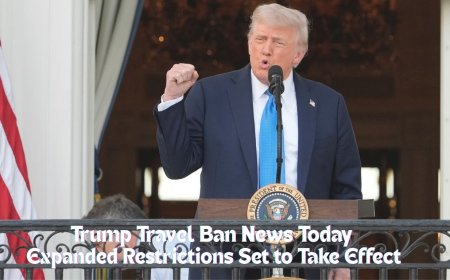DOJ Grant Cancellations Lawsuit: Legal Battle Over Federal Funding

Introduction
In recent years, the intersection of federal funding and political ideology has become increasingly contentious, particularly when it involves grants issued by the U.S. Department of Justice (DOJ). A surge of attention has emerged around the DOJ grant cancellations lawsuit, a high-profile legal battle where advocacy organizations, nonprofits, and educational institutions allege that the DOJ unjustly rescinded previously approved grant funding.
This lawsuit is more than a simple bureaucratic dispute—it raises constitutional questions, exposes potential political bias, and highlights the importance of transparency and consistency in federal grant-making. In this article, we will examine the background of the case, the key players, legal claims, implications for grantees, and potential outcomes of this unfolding legal saga.
Background of the DOJ Grant Cancellations
What Prompted the Lawsuit?
The DOJ, through its Office of Justice Programs (OJP), awards billions of dollars annually to support criminal justice, public safety, and community outreach initiatives. However, in recent years, several organizations have accused the DOJ of withdrawing funding for approved grants without cause—allegedly for ideological or political reasons.
Notably, a series of community-based violence prevention programs and juvenile justice reform initiatives were defunded abruptly, often after receiving verbal or written approval. These cancellations spurred multiple groups to file lawsuits claiming violations of due process and breach of contract.
Examples of Affected Programs
| Organization | Grant Purpose | Status Post-Cancellation |
|---|---|---|
| Alliance for Safe Streets | Violence prevention in urban communities | Funding revoked |
| Youth Justice League | Juvenile rehabilitation programs | Lawsuit filed after cancellation |
| Civic Engagement Fund | Voter outreach and civic education in prisons | Application denied post-approval |
| College Access Initiative | Prison-to-college pipeline support | DOJ withdrew funds without explanation |
Legal Arguments and Constitutional Claims
Core Allegations in the Lawsuit
The plaintiffs in the DOJ grant cancellations lawsuit argue that the department engaged in unlawful discrimination, arbitrary decision-making, and retaliation based on viewpoint. They claim that the DOJ:
-
Canceled grants without due process or proper explanation
-
Violated the First Amendment by discriminating based on political or ideological viewpoints
-
Breached contractual agreements after awarding funds
-
Created an atmosphere of fear and self-censorship among advocacy organizations
Legal Grounds Cited by Plaintiffs
-
Violation of the Administrative Procedure Act (APA)
– Failure to follow proper rule-making and revocation procedures. -
Breach of Contract
– Grants were approved and agreements signed, constituting enforceable contracts. -
Due Process Violation (5th Amendment)
– Funds were rescinded without notice or opportunity for appeal. -
First Amendment Violation
– Allegedly targeting organizations based on advocacy efforts or political affiliations. -
Equal Protection Clause Violation (14th Amendment)
– Disproportionate impact on minority-led or progressive organizations.
DOJ’s Defense and Official Position
DOJ’s Justification
In response to the lawsuits, DOJ officials stated that certain grants were rescinded due to:
-
Budget reallocations
-
Ineligibility after further review
-
Concerns about financial oversight or misuse potential
-
Policy shifts in funding priorities under new leadership
The DOJ argues that no political bias was involved and that it retains discretion over the allocation and cancellation of federal grants. Moreover, it asserts that preliminary approvals do not constitute final, binding contracts until all compliance reviews are complete.
DOJ’s Claimed Reasons for Grant Cancellations
| Justification Category | DOJ Statement |
|---|---|
| Financial Review Failures | Applicants failed to meet audit/compliance standards |
| Policy Realignment | Funding redirected to other public safety priorities |
| Procedural Errors | Approvals were issued prematurely or with administrative mistakes |
| Legal Risk | Risk of litigation or misuse identified post-approval |
Impacts of the Lawsuit
On Grantees and Nonprofits
The abrupt grant cancellations have led to severe financial and operational consequences for many organizations. Programs were halted, employees were laid off, and services to vulnerable communities were disrupted.
Key Impacts on Grant Recipients
-
Loss of Services
– Violence prevention, reentry support, and education programs were canceled. -
Reputational Damage
– Organizations lost credibility with donors and local communities. -
Legal Costs
– Many nonprofits had to divert resources to fund legal challenges. -
Decreased Trust in Institutions
– Undermined public faith in the DOJ’s fairness and accountability. -
Chilling Effect
– Other groups became hesitant to pursue justice-oriented or politically sensitive work.
Broader Political and Social Implications
This lawsuit comes at a time of heightened political polarization, where federal institutions face scrutiny for real or perceived biases. The case illustrates the tension between government discretion and organizational rights, raising questions about transparency, fairness, and the role of ideology in public funding.
It also coincides with broader debates around:
-
Weaponization of federal agencies
-
Freedom of expression in nonprofit advocacy
-
Ethics in federal grant-making
The outcome of this lawsuit could set a precedent for how future administrations interact with civic organizations and manage federal funds.
Possible Outcomes and Future Outlook
As the lawsuit progresses through federal courts, a few key outcomes are possible:
Potential Resolutions of the Lawsuit
-
Court Rules in Favor of Plaintiffs
– DOJ may be required to restore funding or pay damages. -
Settlement Agreement
– DOJ and plaintiffs reach a compromise with no admission of wrongdoing. -
Dismissal of the Case
– Courts side with DOJ, affirming its discretionary power over grants. -
Legislative Reform
– Congress could introduce reforms to clarify rules for grant cancellations. -
Public Oversight Expansion
– Increased scrutiny from watchdogs, journalists, and advocacy groups.
Conclusion
The DOJ grant cancellations lawsuit represents more than a fight over funding—it’s a constitutional challenge, a policy debate, and a test of democratic accountability. As federal courts weigh the claims of unfair treatment, retaliation, and viewpoint discrimination, the decision could reshape the landscape of federal grant-making for years to come.
Nonprofits, lawmakers, and the public will be watching closely. Whether this lawsuit ends in vindication or dismissal, it has already ignited a national conversation on how justice, fairness, and politics intersect in government funding decisions.






























